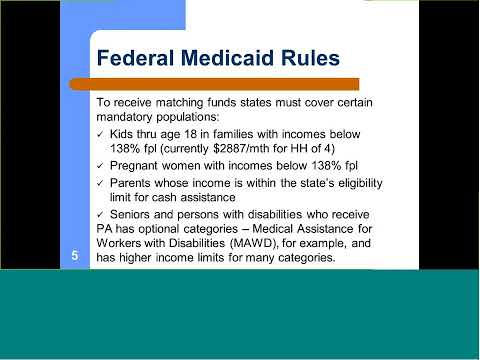The Ultimate Medical Assistant Competency Checklist
Contents [show]
Here’s a comprehensive medical assistant competency checklist covering the key skills and duties you’ll need to excel in the role.
Checkout this video:
1. The Ultimate medical assistant Competency Checklist
Medical assistants are vital members of any healthcare team. They provide clinical and administrative support to physicians and other medical staff, ensuring that patient care runs smoothly.
To be a great medical assistant, you need more than just technical skills. You must be able to communicate effectively, work well under pressure, and maintain a professional demeanor at all times.
The following checklist will help you assess your competence as a medical assistant. If you can check off all of the items on this list, then you’re well on your way to becoming a top-notch MA!
2. What Medical Assistants Need to Know
Medical assistants need to have a thorough understanding of the medical field in order to provide quality patient care. This includes knowledge of Medical Terminology anatomy and physiology, common diseases and treatments, as well as office procedures. MAs also need to be proficient in computer applications and understand insurance billing and coding.
In addition to these technical skills, medical assistants must also possess strong people skills. They need to be able to communicate effectively with patients, families, and members of the healthcare team. They must also be able to handle sensitive information with discretion and maintain a professional demeanor at all times.
3. The Medical Assistant Job Description
Although there is some variation in job duties, most medical assistants perform administrative, clinical, or a combination of the two tasks in outpatient care facilities such as physician’s offices and clinics.
The following are examples of medical assistant tasks:
Administrative medical assistant duties:
— Answering phones
— Scheduling appointments
— Maintaining medical records
— Billing and coding insurance forms
— Completing insurance paperwork
— Arranging hospital admissions and laboratory services
Clinical medical assistant duties:
– Taking patients’ histories
– Recording vital signs
– Preparing patients for examination
– Assisting the physician during examinations
– Instructing patients on medication and special diets, procedures, treatments, and home care needs
4. Medical Assistant Duties & Responsibilities
t’s important to know exactly what medical assistants do on a day-to-day basis before beginning your training. Once you have a clear understanding of the medical assistant job description, you can start to develop the necessary skills for success in this field.
The following list of medical assistant duties and responsibilities covers the most important day-to-day tasks associated with this position. Use this checklist as a guide during your job search and as you review potential employees during the hiring process.
Medical Assistant Duties &Responsibilities
• Greet patients and escort them to the examination room
• Coordinate scheduling for diagnostic testing and follow-up appointments
• Take patient medical histories and vital signs
• Prepare patients for examination and assist the physician during the exam
• Instruct patients on taking medication and other treatments
• Collect laboratory specimens and perform basic laboratory tests
• Maintain accurate patient medical records
• Code and bill insurance companies for services rendered
5. Medical Assistant Skills & Competencies
The medical assistant profession has evolved since its humble beginnings in the early 1900s. Medical assistants now perform a variety of clinical and administrative tasks to keep the offices of physicians, podiatrists, chiropractors, and other health practitioners running smoothly. The job duties of medical assistants vary from state to state and from one medical specialty to another. But regardless of where you work as a medical assistant or what duties you perform, employers will expect you to have certain skills and competencies.
This Medical Assistant Competency Checklist will help you assess your own skills and knowledge in the following areas:
Communication Skills
As a medical assistant, you will need to be able to communicate effectively with patients, families, co-workers, and other members of the health care team. You will also need to be able to communicate effectively in writing.
Interpersonal Skills
As a medical assistant, you will be interacting with patients on a daily basis. It is important that you have strong interpersonal skills so that you can build rapport with patients and put them at ease.
Organizational Skills
Medical offices are fast-paced environments and it is important for medical assistants to be organized and efficient in their work. Medical assistants need to be able to keep track of patients’ records, schedules, and appointments. They also need to be able to handle multiple tasks at one time while maintaining a high level of accuracy.
Clinical Skills
Many medical assistants are responsible for performing clinical tasks such as taking patient vital signs, administering injections, performing phlebotomy (venipuncture), and dressing wounds. It is important for medical assistants to have strong clinical skills so that they can provide high-quality patient care.
6. How to Become a Medical Assistant
Whether you are just beginning your career in the medical field or are looking to make a change, becoming a medical assistant may be the perfect choice for you. Medical assistants perform both administrative and clinical tasks in order to keep medical offices and clinics running smoothly. And, with the aging Baby Boomer population and the Affordable Care Act increasing access to medical care, the demand for medical assistants is expected to grow much faster than average through 2024, according to the U.S. Bureau of Labor Statistics. If you are detail-oriented, thrive in a fast-paced environment, and have good interpersonal skills, a career as a medical assistant may be perfect for you.
As a medical assistant, you will need to have both administrative and clinical skills. Administrative medical assistant duties include managing patient records, scheduling appointments, answering phones, and billing patients. Clinical duties vary depending on State regulations but may include taking patient histories and vital signs, preparing patients for examination, assisting with procedures, giving injections, performing phlebotomy (drawing blood), and providing patient education.
The best way to gain the skills necessary to succeed as a medical assistant is to complete an accredited postsecondary education program. accredited by the Commission on Accreditation of Allied Health Education Programs (CAAHEP) or the Accrediting Bureau of Health Education Schools (ABHES). These programs typically take about one year to complete and offer both classroom instruction and hands-on training in Medical assisting students learn how Students who complete an accredited program are eligible to take the Certified Medical Assistant (CMA) exam administered by the Certifying Board of the American Association of Medical Assistants (AAMA).
While not required, certification may give job applicants an edge in the competitive medical assistant job market and may lead to higher wages. In addition, many employers require their medical assistants to be certified. Once you have your CMA credential, you will need to renew it every 60 months by completing 60 continuing education credits or retesting
7. Medical Assistant Education & Training
Medical assistants must complete an accredited medical assistant program, which typically takes one to two years to complete. Alternatively, some candidates may choose to complete a four-year medical degree followed by a one-year medical assistant residency program. After completing their education and training, medical assistants must pass a national certification exam to earn their credential.
8. Medical Assistant Certification & Licensure
Medical assistants are not required to be licensed or certified in most states, but certification shows employers and patients that you have the skills and knowledge necessary to perform your job well. To become certified, you must pass an exam administered by a credentialing organization, such as the National Healthcare Association or the American Association of Medical Assistants. You may also need to complete a certain amount of continuing education credits to maintain your certification.
9. Medical Assistant Salary & Job Outlook
Medical assistants made a median salary of $32,480 in 2016, according to the U.S. Bureau of Labor Statistics (BLS). The best-paid 10 percent in the field earned more than $45,360, while the lowest-paid 10 percent brought in less than $23,580.
##Keywords: Medical assistant job outlook, Medical assistant salary
10. Medical Assistant FAQs
Here are some answers to frequently asked questions (FAQs) about medical assistants:
Q: What does a medical assistant do?
A: Medical assistants are trained to perform both administrative and clinical tasks in a medical office. They may work under the supervision of a physician or nurse, or they may have more independence to perform their duties.
Q: What kind of training do I need to be a medical assistant?
A: Depending on your state, you may need to complete an accredited Medical Assistant program and pass a certification exam. Some states allow you to start working as a medical assistant without any formal training, but it is always best to check with your state’s requirements before beginning your career.
Q: Where can I find a job as a medical assistant?
A: You can find job listings for medical assistants on job search websites, such as Indeed.com, or you can check with your local hospitals or clinics. You can also contact professional organizations, such as the American Association of Medical Assistants, for job postings.
Q: What is the average salary for a medical assistant?
A: The average salary for a medical assistant is $33,610 per year, according to the U.S. Bureau of Labor Statistics.







